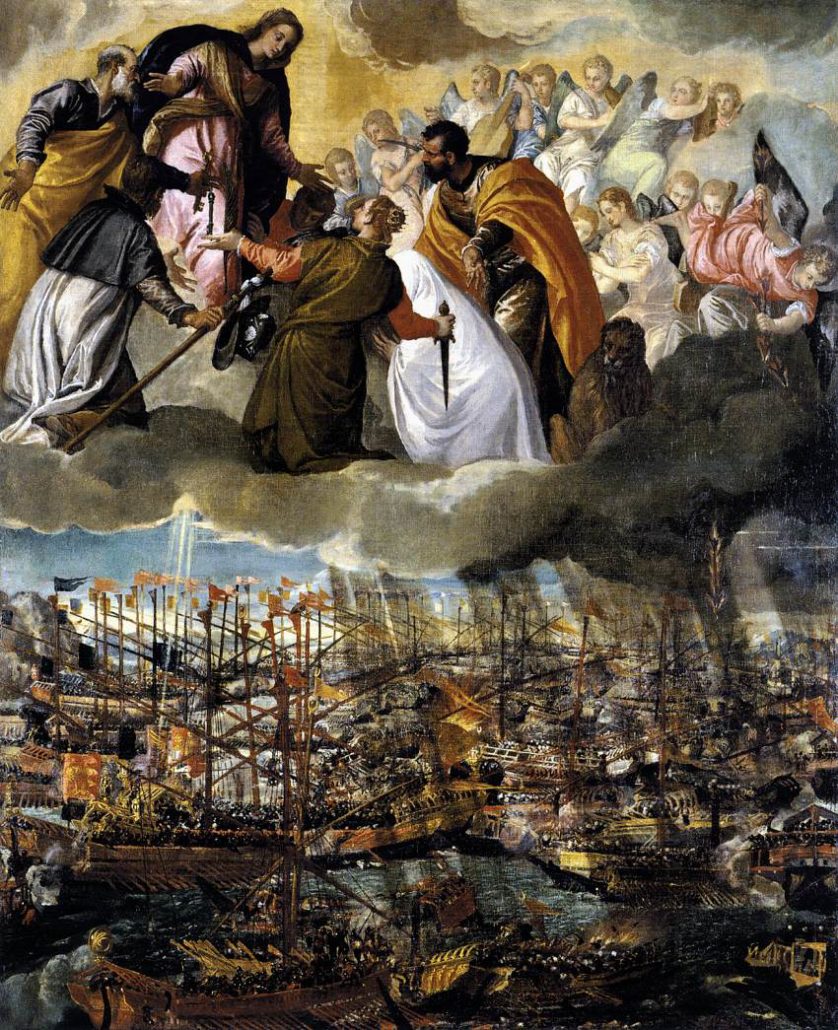Christopher Check, President of Catholic Answers, writing for Catholic Answers Magazine:
A good bit of the political rhetoric that followed the El Paso and Dayton massacres argued that we can arrest or reverse immoral behavior with legislative, therapeutic, or technological solutions. We have heard calls for more federal money to address mental illness, more legal restrictions on the ownership of firearms, and better software for sifting through billions and billions of social media posts. Some of these measures may well prevent some future brutality, but their effect will be marginal.
I propose something more fundamental: Christians who feel a sense of helplessness or even despair after each mass shooting should start being honest about evil, with themselves and with those that God puts in their lives. If you are reluctant to talk about evil and need a pep talk, I recommend the stirring final chapter of St. Paul’s letter to the Ephesians:
For we are not contending against flesh and blood, but against the principalities, against the powers, against the world rulers of this present darkness, against the spiritual hosts of wickedness in the heavenly places.
Let’s set aside talk of the culture war and talk instead about spiritual combat. Paul’s meaning is clear: evil is personal. There are demons at work in the world, and these demons are persons—not just vague forces or bad feelings. If you have ever been tempted by the deliberate efforts of another human person, you can at least have a guess at how vastly more skilled demons are. They need not bother with your senses. They can go straight to your imagination.
For very good reason the Church exhorts us to make it a fair fight by seeking the help of St. Michael and his angels to defend us in spiritual combat. For very good reason the Church warns us to avoid the occult. I discourage you from looking at all into the obsessions of the Dayton killer, but his enthusiasm for the demonic cannot be separated from the evil acts he committed. Was he possessed by a demon? The Church is careful not to make such determinations without close examination and cannot do so in this case. But it would be naïve to dismiss the massacres that are now so much a part of our news cycle as merely the actions of racists or the mentally afflicted.
Amidst all the attempts to politicize — and to politically profit from — these tragedies, I haven’t heard too many takes like this, taking into account the metaphysical (yet very real) dimensions of these evils.
As a former Marine, Check knows, as did G.I. Joe, that “knowing is half the battle”. But only half. To win, one must not only understand the enemy one is up against; a practical battle plan is needed. Check offers one strategem in particular:
Closer to the truth, of course, is the causal relationship between the disintegration of marriage and family and the abundant social pathologies that afflict the children of broken homes. My friends Allan Carlson and Jennifer Roback Morse, and many other historians of the family, have amassed data enough to choke an elephant showing that social chaos fills the vacuum left by the retreat from marriage. If the government wanted to promote the one institution whose failure leads more than any other to the violence plaguing our country, it would encourage marriage and the traditional family. An easy way to do this would be tax incentives that favor intact families with children.
Catholics who want to do something about mass shootings should live fully and publicly the teachings of the Church concerning the sacrament of matrimony. Here are two: don’t divorce and stop contracepting. That sounds glib, I know, but matrimony is a sacrament, so with it comes all the graces needed to live it to the fullest.
Direct and to the point. Many of today’s lost boys and girls are the casualties of the War on Marriage and the Family being waged in our culture today. Intact families don’t always produce law-abiding citizens, of course (original sin and its aftermath, at work in the existence of free persons who can choose against the good, are always in play), but there is no question that healthy “cells” (families) are the key to the health of the “body” (societies, be they nations or the Church).


 Today is the Feast of Our Lady of the Rosary. Why is celebrated today, October 7? It was on this day, in 1571, that a battle was fought that changed the very course of history. Christianity was saved from certain destruction in the West.
Today is the Feast of Our Lady of the Rosary. Why is celebrated today, October 7? It was on this day, in 1571, that a battle was fought that changed the very course of history. Christianity was saved from certain destruction in the West.
 My family and I had just spent a great day on Toronto’s Centre Island last week. We had just stepped off the boat that had taken us back to the harbourfront downtown, when we were confronted by about 2,000 Pokemon Go players, standing around in their virtual world, trying to catch a few more pocket monsters. Most of them were oblivious to the actual people trying to get by them and get home.
My family and I had just spent a great day on Toronto’s Centre Island last week. We had just stepped off the boat that had taken us back to the harbourfront downtown, when we were confronted by about 2,000 Pokemon Go players, standing around in their virtual world, trying to catch a few more pocket monsters. Most of them were oblivious to the actual people trying to get by them and get home.